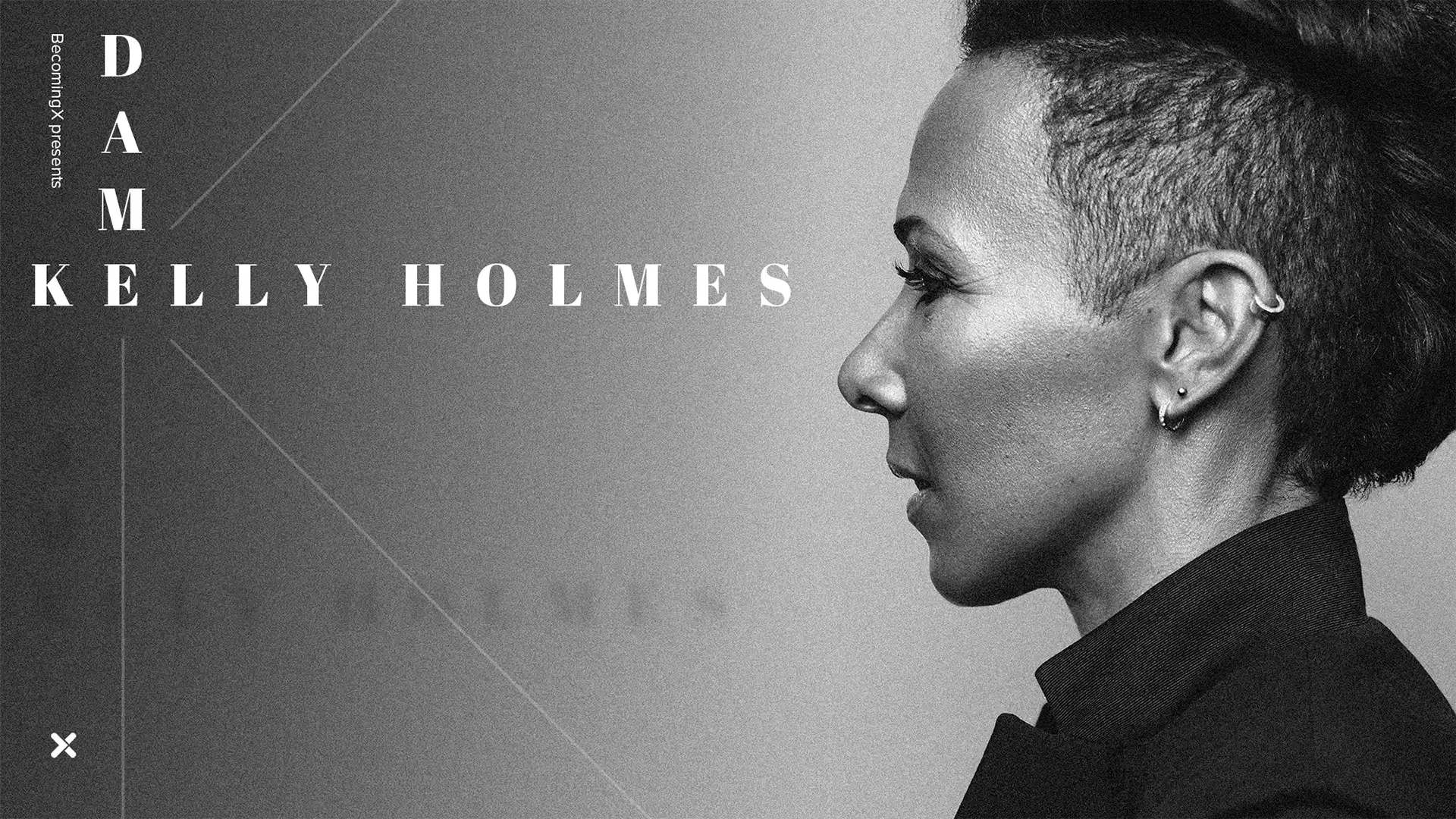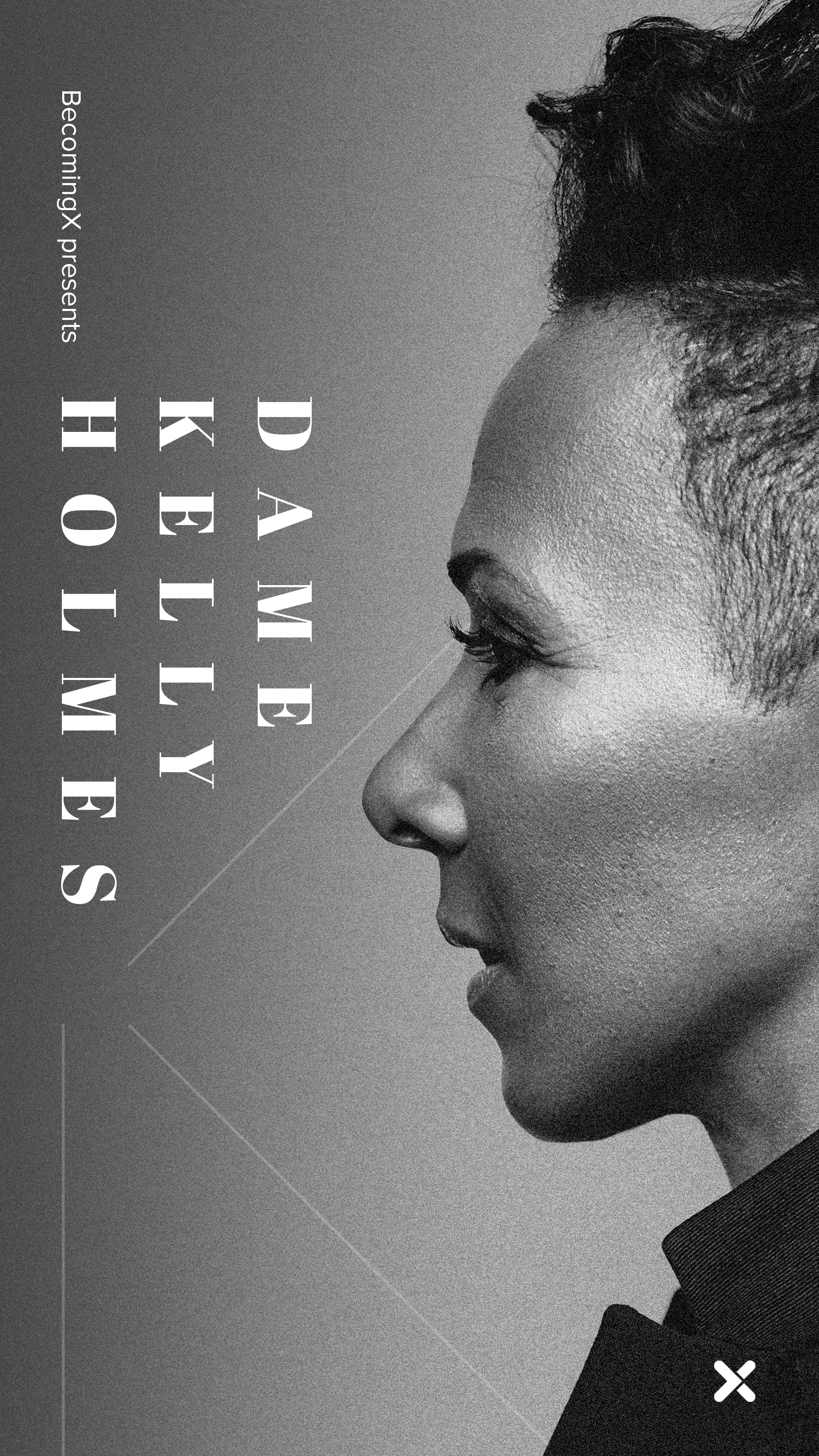

| Viewer discretion advised. Themes include self harm. |
“I’m just this girl from Kent that grew up in a council estate that just loved running.”
Dame Kelly Holmes. Double Olympic Gold medallist. One of the greatest British athletes of all time.
Incredibly humble as she is, Kelly earned her legacy as one of the greats through hard work, resilience, and unwavering determination to be a champion. She faced some incredibly tough mental battles, which she talks openly about now in the hope of helping others.
Growing up, Kelly struggled academically and only really went in to school to see her friends. Where she shone however, was in sports. At age 14 she had two dreams: to be in the Army as a physical training instructor and to be Olympic Champion.
Greatness isn’t pre-determined. Kelly’s drive led her to pursue both her dreams simultaneously; she joined the Army at 17, and at 23 she ran in her first World Championship. Juggling both her responsibilities as a soldier and an international athlete was tough, but she made it work. She won the Commonwealth Games in Canada and the European silver medal in Gothenburg.
Fast forward to 2003, and having now left the Army, Kelly is preparing for the World Championships in Paris. But she’s also having the biggest breakdown of her life. Suicidal thoughts. Self-harm. Mental health awareness was non-existent at the time. Despite this, her utter focus on the World Championships kept her together and unbelievably she ended up winning silver. Then, just one year later, Kelly achieved her lifelong dream. She took Olympic Gold in Athens. Twice.
Kelly teaches us to follow our dreams. To identify the thing we’re good at and not compare ourselves to others. She is an advocate for mental health awareness and her journey is testament to the power of resilience.
Life is always going to have a brick wall. The ones that keep going might just break through it.
Kelly Holmes – video transcript
I'm just this girl from Kent that grew up in a council estate that just loved running. That feeling of inspiring people and knowing that your journey, no matter how tough it was, has actually made a difference to again so many other people. It's a weird position to ever be in.
Growing up was kind of an interesting time for me, because I grew up in Kent, at that time with my mother who's white and my father, my stepdad, actually who was white. And I went to a primary school that was all white children and that's all I know.
I went to school purely for my friends, because I wasn't academic at all. I literally sat in a classroom just wishing the time away. But I could do sports and so sport gave me the ability to show who I was, and that's the only time I ever felt really good about myself. From the age of 14, I wanted to be two things: I wanted to be Olympic champion and I wanted to be in the Army as a physical training instructor. And I feel quite lucky that at that age, that I've had such a strong feeling inside me about what I wanted to be.
I tried to go in the Army when I was 14, 15, 16, 17. I got my mum to take me to the Army recruitment office, and I was always too young. But when I was 17, they said, I could take the test, and I want to be a physical training instructor but the course was full, so now I decided I'll become a heavy goods vehicle driver if it got me in the Army, so that's what I did. For me, I was a soldier first, but the athletics, you know, I just believed I still had this, I don't know this, this ability to be good.
I went to my first World Championships when I was 23, and got into semifinals the following year. I won the Commonwealth Games in Victoria, Canada, and European silver medal in Gothenburg and just sort of started to get better and better.
You know, you just have to remember, I was still a full time soldier and I was an international athlete. So actually juggling those two things became quite tough, but also what made me tough was that I was a very strong young female. And my dream was still to be Olympic 1500 metre champion. So I ended up leaving the Army the end of '97 and then I went on the next mission for the Olympic title.
I had been through so many different emotions of highs, lows. I remember getting ready for the World Championships in Paris in 2003. Well, basically, I had the biggest breakdown of my life. I just was in a holding camp, I looked in the mirror, hated my body, everything about myself, everything that I believed in, and I wanted a hole to appear and jump in and I didn't want to see the next day. I saw some scissors on the side, I started cutting myself for everyday I'd been injured, which is a lot. Used to cover myself up with makeup to hide it, because my training partner, my coach were still there. They had no idea, because at that time we didn't talk about emotions.
Mental health awareness was nothing. I didn't even know about what a breakdown was or depression or being a self-harmer involved. But, I'm still getting ready for World Champs you know, and that's what actually kept me probably in one piece and to not jump in a hole.
Within a couple of weeks of being in the worst place of my life, I ended up winning a silver medal at the World Championships and stand on the rostrum and all I could think is no one has any idea what I'm going through. Yet, look, I've got a silver medal. And for me, I feel so lucky that even though I had such a bad time in general, that I had a strong soul and belief in myself because I think that's a big part of living and achieving. The belief in myself and those dreams are so real that I thought I can, you know, do this.
Winning the 1500 metres in Athens was literally a 20 year dream come true. When I crossed it literally felt like this weight that I'd had in my head, body, mind all this time had just lifted off. And suddenly I was just like, "oh my God I've done it." It was just weird, I want to cry now.
We're all so unique and I think unfortunately in life we compare ourselves against others, either in the industry that we go into or the thing that we're interested in, because we see someone that's being really good and some people go, "oh, I'll never be that good," but why not? You know, because actually the first point is identifying that thing inside you that makes you have that passion or drive or determination. You know, you've got something that, I love this but you have to listen to that in your head, you know.
For me, it's about recognising your own skills, believing in yourself, finding something you feel passionate about because then you're likely to keep going and then just using those as drivers. But mainly to realise that life is always going to have a brick wall, you know, and the ones that give up will never ever succeed. And the ones that keep going might just break through it.
END CARD
Kelly Holmes became a double Olympic Gold medallist in 2004 and is considered to be one of the greatest British athletes of all time.
Having hidden her mental health challenges from the world, she now speaks openly about the issues she faced throughout her career.
Since retiring in 2005, she has set up the Dame Kelly Holmes Trust to help disadvantaged young people through sports and physical activity.